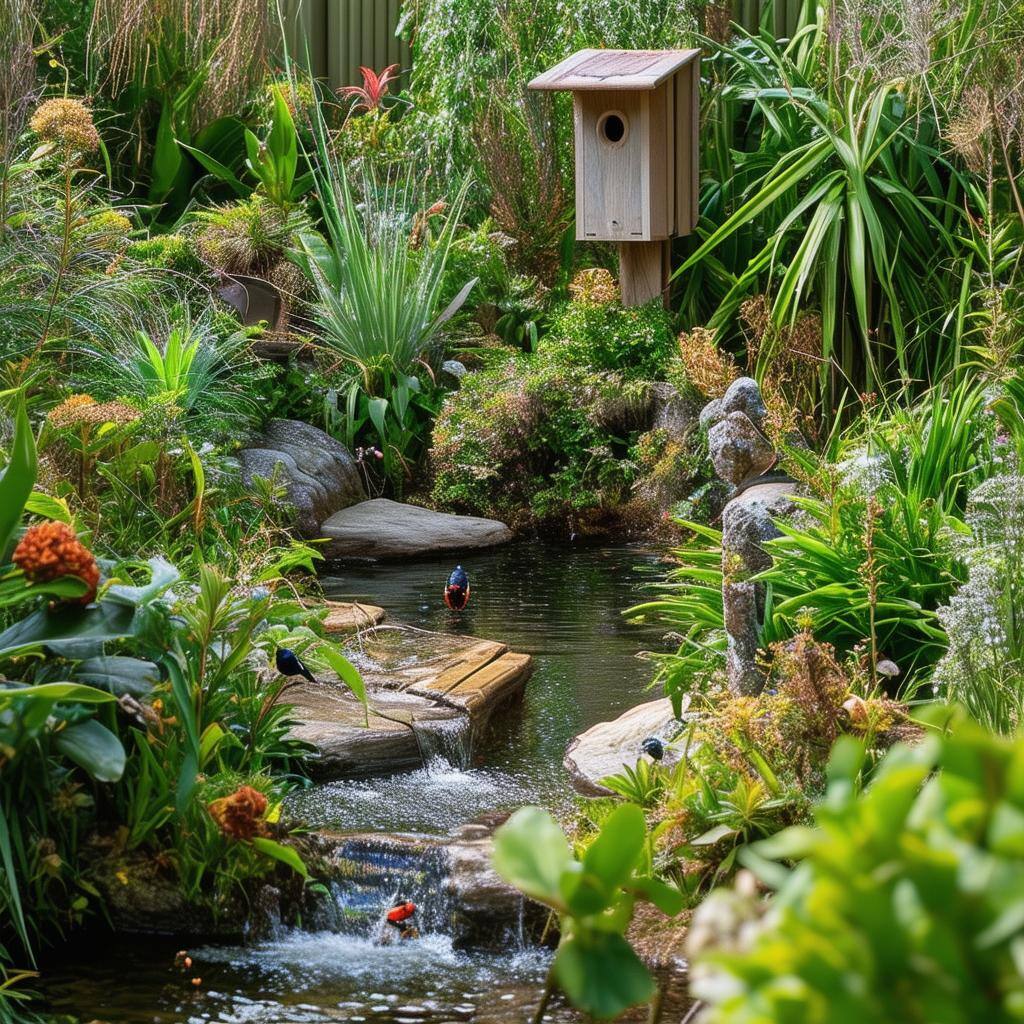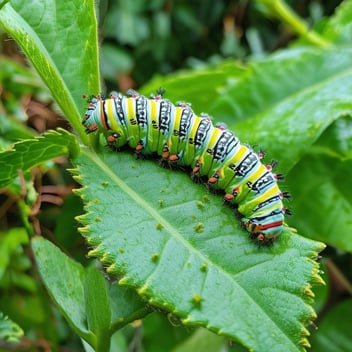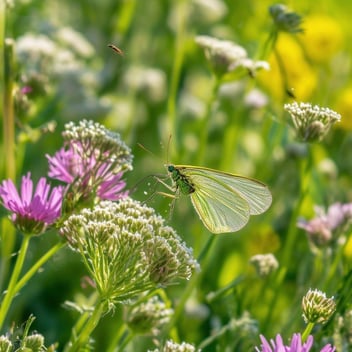Garden Guardians: Beneficial Bugs and Birds in SEQ
In the lush landscapes of South East Queensland, a silent partnership thrives between gardeners and the myriad of beneficial insects and birds that inhabit their green sanctuaries. These unheralded allies play pivotal roles in maintaining the health and vitality of gardens, orchestrating a natural harmony that reduces the need for chemical interventions.
The Unsung Heroes: Beneficial Insects
Among the most diligent of garden custodians are ladybugs, hoverflies, and native bees. Ladybugs, with their distinctive spotted carapaces, are voracious predators of aphids, consuming vast numbers that would otherwise decimate tender plant shoots. Hoverflies, often mistaken for bees due to their striped abdomens, serve a dual purpose: their larvae feast on aphids and scale insects, while adults pollinate flowers, facilitating plant reproduction. Native bees, including the stingless Tetragonula carbonaria, are indispensable pollinators of indigenous flora, ensuring the propagation of native plant species and the overall biodiversity of the region.
Avian Allies: Beneficial Birds
The avian inhabitants of SEQ gardens contribute significantly to pest control and pollination. The superb fairy-wren (Malurus cyaneus), with its vibrant plumage, is an insectivorous bird that diligently patrols gardens, consuming insects and their larvae, thus protecting plants from potential damage. Honeyeaters, as their name suggests, feed primarily on nectar, and in doing so, they transfer pollen from flower to flower, aiding in the reproductive processes of various plant species. Kookaburras, renowned for their distinctive call, are adept hunters of small vertebrate pests, such as rodents and reptiles, thereby maintaining ecological balance within the garden.
Creating a Haven: Designing a Wildlife-Friendly Garden
To attract and sustain these beneficial creatures, gardeners can design spaces that cater to their needs. Incorporating native plants provides familiar food sources and habitats, encouraging fauna to take residence. Establishing water features, such as birdbaths or small ponds, offers essential hydration, while dense shrubbery and nesting boxes supply shelter and breeding sites. By creating a mosaic of plant types and structures, gardeners can support a diverse array of wildlife, fostering a resilient and self-sustaining ecosystem.
Natural Pest Management Strategies
Embracing the predatory instincts of beneficial insects and birds allows for effective natural pest control. Encouraging their presence reduces the reliance on chemical pesticides, which can harm non-target species and disrupt ecological balance. Companion planting—strategically positioning plants that deter pests or attract predators—further enhances this approach, creating a dynamic environment where plants and their guardians coexist symbiotically.
Monitoring and Maintaining Ecological Balance
Regular observation is crucial to ensure that the garden ecosystem remains balanced and thriving. Gardeners should monitor the populations of both pests and beneficial species, adapting management practices as necessary to respond to fluctuations. This adaptive approach fosters resilience, allowing the garden to withstand environmental changes and pest pressures without resorting to harmful interventions.
Community Engagement and Education
Raising awareness about the vital roles of beneficial insects and birds in urban gardening is essential for conservation efforts. Engaging the community through educational programs and participatory activities fosters a collective responsibility towards preserving these species. By sharing knowledge and experiences, gardeners can inspire others to adopt practices that support biodiversity, contributing to the ecological health of South East Queensland.
In essence, the guardians of SEQ gardens—both bugs and birds—are integral to the flourishing of these green spaces. By understanding and nurturing their presence, gardeners can cultivate environments that are not only beautiful but also ecologically harmonious, ensuring that nature's delicate balance is maintained for generations to come.




